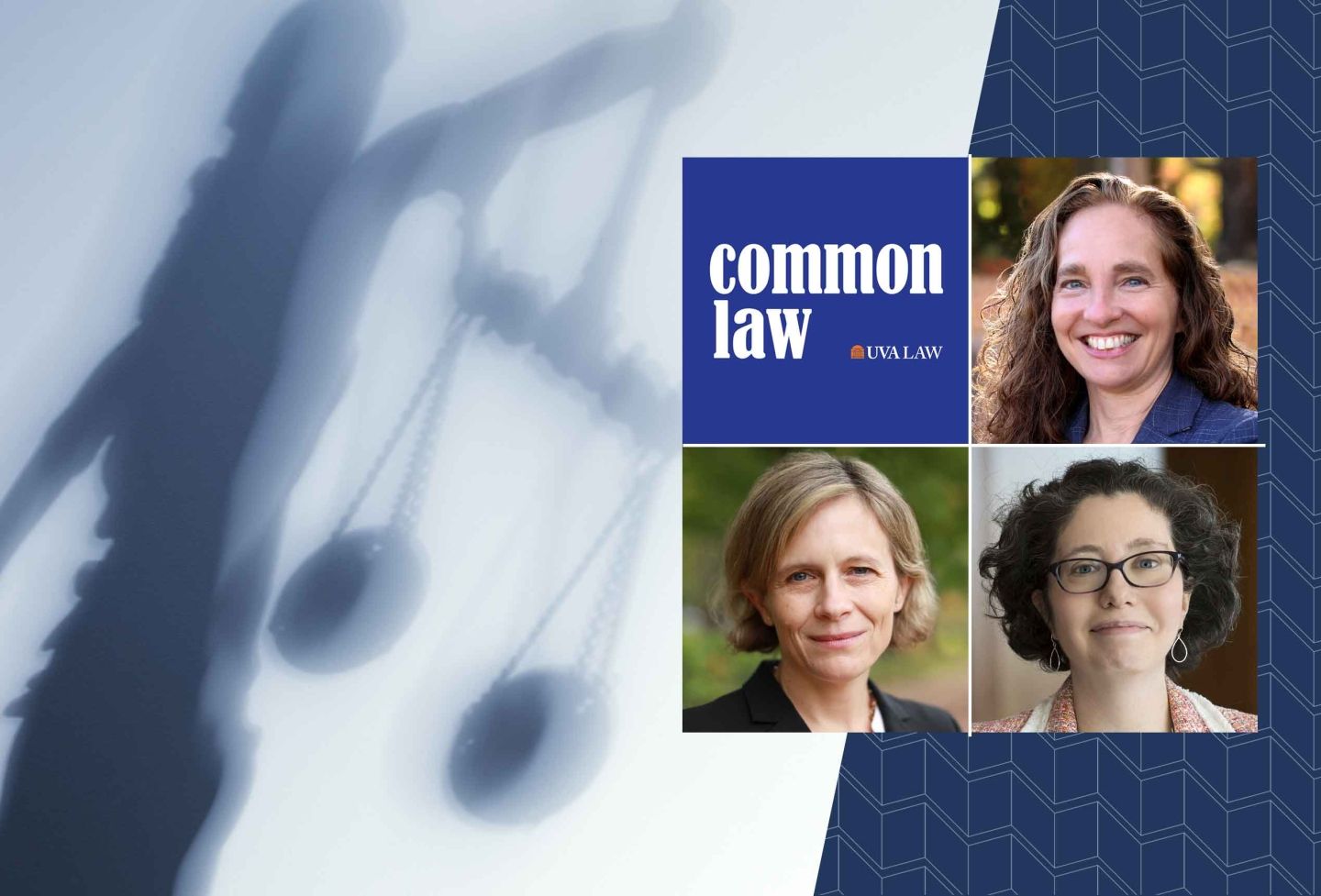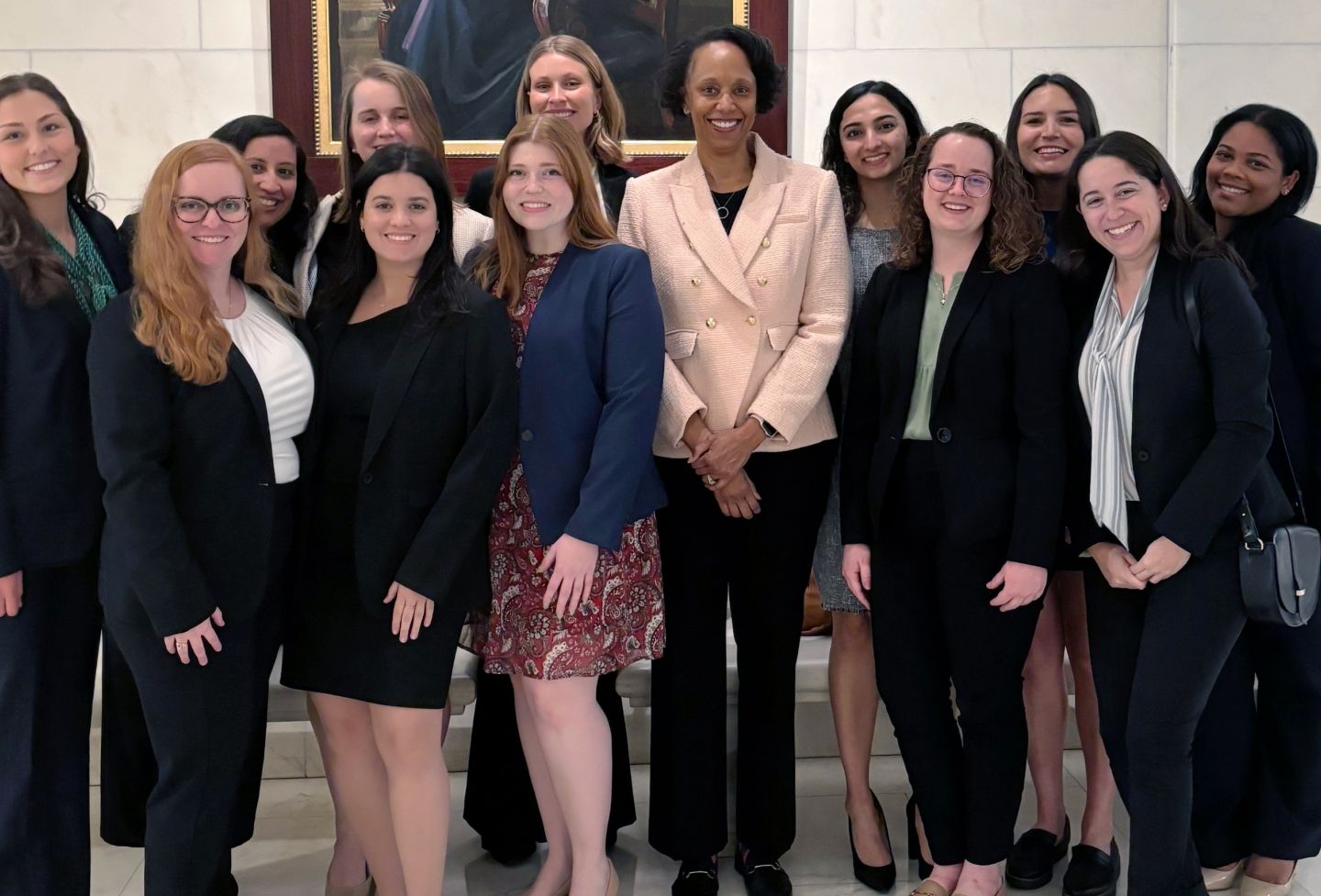The rules on character evidence in criminal trials are full of exceptions and problems, scholar Teneille Brown on the latest episode of “Common Law,” a podcast of the University of Virginia School of Law.
Character evidence is generally not admissible in court — just because you did a bad thing before doesn’t mean you’re immoral or incapable of change. At least that’s the common law theory behind the ban on character evidence in most criminal cases.
But the rule is difficult to apply and riddled with exceptions and problems, according to Brown, a University of Utah law professor, who said the evidentiary rule has led to more reversals and acquittals than any other rule. Her newest paper, “Bad Habits,” forthcoming in the Howard Law Review, also found that the rules of evidence — based heavily on notions of morality — aren’t keeping up with society’s changing understanding of morals, mental illness and human behavior.
In this episode of “Common Law,” co-hosts Dean Risa Goluboff and Professor Cathy Hwang do a little role-playing with Brown as the prosecutor, defense counsel and judge, to give listeners an idea of how these complexities might play out in real life.
As Brown and the hosts discuss on this episode, the early common law rule against character evidence only kept out evidence of immoral behavior, and conceptions of morality were then more agreed upon. In 1975, the Federal Rules of Evidence suddenly banned all character evidence, yet exceptions to the rule abound. Today, a person’s history of addiction might be impermissible as stigmatizing character evidence, but still be admitted as habit evidence or psychological profile evidence. The hosts explore what all this means: Should the exclusionary rule be more closely tied to whether the evidence goes to a defendant’s immorality? And who gets to decide what is immoral these days?
Brown is a professor of law at the S.J. Quinney College of Law at the University of Utah and an adjunct in the Department of Internal Medicine/Center for Health Ethics, Arts, and Humanities. She graduated from the University of Michigan Law School and completed three postdoctoral fellowships at Stanford.
Her fellowships and research span a wide range of issues at the intersection of law, genetics, neuroscience, medicine and ethics. She is on the executive committee for the AALS Evidence section and the Utah Supreme Court’s Advisory Committee on Evidence.
In a continuation of last season, called “Co-Counsel,” the podcast’s fifth season returns with Goluboff and four rotating co-hosts: Hwang, Danielle Citron, John Harrison and Gregory Mitchell. Each will join Goluboff to discuss cutting-edge research on law topics of their choice.
“Common Law” is available on Apple Podcasts, Stitcher, YouTube, Spotify and other popular podcast sources. The show is produced by Emily Richardson-Lorente.
Past seasons have focused on “The Future of Law,” “When Law Changed the World“ and “Law and Equity.”
You can follow the show on the website CommonLawPodcast.com or Twitter at @CommonLawUVA.
Founded in 1819, the University of Virginia School of Law is the second-oldest continuously operating law school in the nation. Consistently ranked among the top law schools, Virginia is a world-renowned training ground for distinguished lawyers and public servants, instilling in them a commitment to leadership, integrity and community service.


